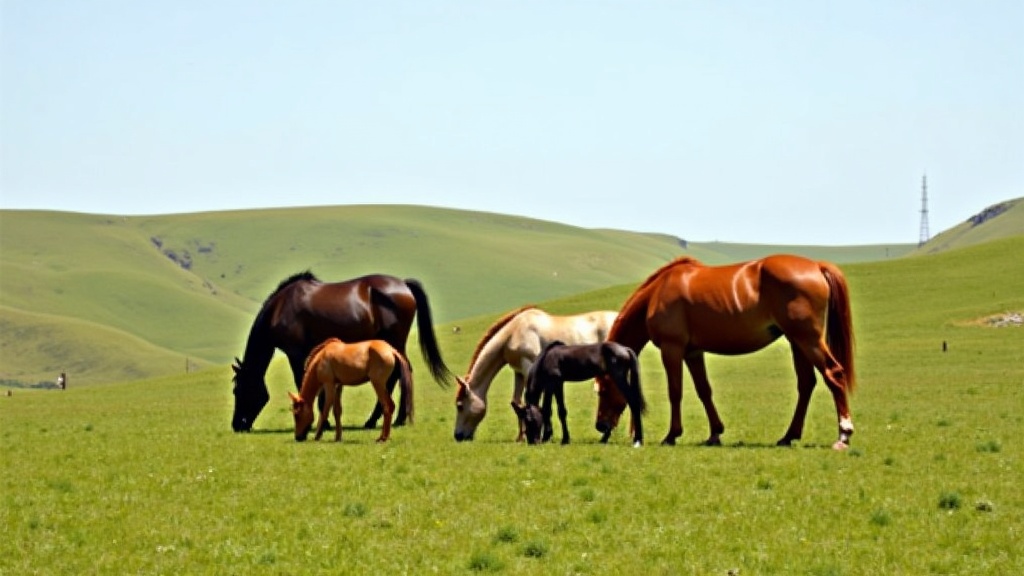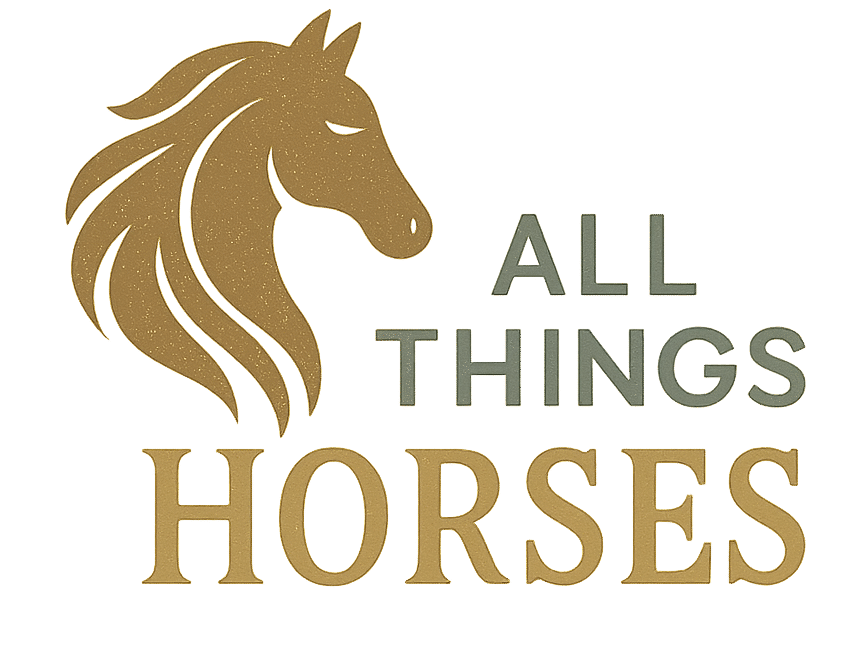Horse lovers and anyone curious about animal lifespans often wonder, “How old do horses live?” Horses are famous for their loyalty and endurance, but their age can surprise a lot of people. Figuring out what affects a horse’s life expectancy and how you can help them live their best life takes a bit of knowledge and care. In this article, I’m breaking down the average lifespan of horses and what you can do to keep them healthy for as long as possible.

Average Lifespan of Horses
The average lifespan for a horse is about 25 to 30 years. Some horses outlive this range, reaching their mid-to-late 30s, and there are even stories of horses living past 40, though that’s pretty rare. For most horses you’ll meet, making it to their midtwenties or early thirties is already considered a long, fulfilling life.
One big thing to keep in mind is that not all horses age at the same rate. Some breeds naturally live longer than others, and care plays an outsized role in how well a horse ages. Ponies, for example, often outlive larger horse breeds by several years thanks to their hardiness and slower metabolism. In fact, some ponies have even reached ages in the high 30s, becoming cherished family members across generations.
Key Factors That Impact a Horse’s Lifespan
How long a horse lives isn’t left up to chance; there are several factors in play. Paying attention to these areas gives your horse the opportunity to age gracefully and stay healthy for the long haul.
- Breed and Genetics: Just like people, horses inherit traits from their parents. Some breeds like Arabians and Icelandic horses tend to live longer, while others may have shorter expected lifespans.
- Diet and Nutrition: Feeding your horse a balanced diet of forage, grains, and minerals is super important. Malnutrition or overfeeding can cause all sorts of health issues that shorten lifespan.
- Veterinary Care: Regular vet checkups, dental care, vaccinations, and parasite control keep horses healthier overall.
- Living Environment: Horses that have access to clean water, shelter, and safe pastures usually age much better than those kept in harsh or unhygienic conditions.
- Workload and Exercise: Moderate exercise keeps horses fit, but overwork or severe neglect can both have negative effects on longevity.
- Hoof and Dental Care: Ignoring hoof trims or dental work can lead to chronic pain or trouble eating, which isn’t great for longevity. Consistent care from a trusted farrier and equine dentist can really step up a horse’s comfort, especially as they age.
Aging in Horses: Common Signs
As horses age, some changes become pretty obvious. Recognizing these early can really help you support an older horse’s needs and comfort.
- Gray Hairs and Droopy Backs: Senior horses often get gray patches around their muzzles and eyes, and may develop a swayback (a dip in their spine).
- Dental Changes: Horses’ teeth grow and wear down throughout their lives, which can lead to sharp edges or lost teeth that affect eating habits.
- Slower Movement: While even older horses love a good gallop, you may notice stiffness or arthritis as the years go by.
- Weight Fluctuations: It’s not unusual for senior horses to become hardkeepers, meaning they struggle to maintain weight, or to have trouble keeping muscle on.
If your horse seems different, it’s always worth getting a checkup. Regular health monitoring helps spot issues early so they’re easier to manage. Some owners even keep journals of their horse’s behavior and physical changes to watch for patterns or concerns over time.
What You Can Do to Help Your Horse Live Longer
While you can’t change your horse’s birthday, you do have quite a bit of say over their quality of life as they grow older. Here are some things that help:
- Balanced Diet: Feed age-appropriate nutrition, and watch for chewing difficulties that might mean they need softer food or pelleted concentrates. Also, make sure fresh water is always available.
- Routine Vet Visits: Schedule yearly checkups, vaccinations, and dental exams to catch problems quickly. Increasing the frequency of vet visits as your horse ages is often a smart move.
- Social Life: Horses thrive best when they have at least one buddy or herd to interact with, lowering their stress and boosting their overall happiness. Social interaction can help reduce stress and even stave off loneliness-related issues.
- Shelter: Provide shelter from harsh weather. Older horses get cold more easily and can overheat in direct sun. Blankets in winter and plenty of shade in summer go a long way.
- Hoof Care: Keep up with hoof trims every six to eight weeks, even retired horses need good feet!
- Exercise: While they may slow down, gentle movement and turnout are super helpful for their bodies and brains. Light exercise can take up a horse’s mood and keep joints from stiffening too quickly.
Common Age-Related Health Concerns in Older Horses
Like all animals, horses face more health risks as they age. Here are a few that show up often and what to watch for:
- Arthritis: You might notice stiffness, especially after lying down or after exercise. Supplements or medications can help manage this, and gentle exercise often keeps joints moving.
- Dental Problems: Worn teeth sometimes make chewing hay tough. Switching to soaked hay cubes or senior feeds can help keep an older horse eating well, and regular dental checks matter even more as chewing ability changes.
- Cushing’s Disease (PPID): A hormonal disorder that pops up more with age. Common early signs are a long, shaggy coat, excessive drinking, and weight loss. Medications and special diets are available if your horse has PPID.
- Weight Loss: Thinner muscle, dropping weight, or a “ribby” appearance is pretty typical. Get a vet’s input for a new feeding plan as they approach their golden years.
- Laminitis: Though not limited to seniors, metabolic changes make older horses more prone. Sudden lameness, heat in the hooves, and stiffness might mean a flare up. Prompt treatment is critical, so call your vet if you spot symptoms.
Sticking to a routine, keeping an eye on their behavior, and reaching out to your vet when something seems off are the best ways to handle these common senior challenges. Being proactive by scheduling consistent hoof and dental care, as well as providing a tailored diet, can ease up some age-related discomfort and lead to happier golden years.
Comparing Horse Lifespans to Other Animals
Wondering how long horses actually live compared to similar animals? Here’s a quick comparison that’s pretty handy:
- Dogs: Most dogs live 10 to 13 years (giant breeds less; small breeds a bit longer).
- Cats: Cats can amaze people by living into their late teens or early twenties, with some outliers reaching 25 years old.
- Cows: Usually around 15 to 20 years, though some well-tended dairy cows may get a bit older.
- Ponies: Not only do ponies live longer than large horses, but it’s not unusual for them to hit their mid 30s and stay healthy. Their smaller size and slower metabolism both make a difference.
Horses usually outlast most other farm animals, especially true if they’ve had regular care and a bit of luck. Horses can be a wonderful longterm companion for those willing to invest the love and effort.
Popular Myths About Horse Lifespan
There’s a lot of hand-me-down wisdom and a few old wives’ tales when it comes to talking about horses’ ages. Here are some I’ve heard, plus what’s really true.
- “Horses only live about 15 years.” Not true for modern horses. Improved nutrition, vet medicine, and deworming mean horses are routinely living much longer than a century ago.
- “Ponies are just small horses; they probably have the same lifespan.” Actually, ponies tend to live longer, probably because of their genetics and the fact that they’re less likely to be overworked.
- “Once a horse gets old, there’s no point in doing vet care.” Older horses benefit even more from healthcare. Dental floats, arthritis help, and diet tweaking make a giant difference in their comfort and health.
Another myth is that once a horse shows signs of aging, there’s nothing more you can do. In reality, modern advances in equine medicine and nutrition allow for targeted care that prolongs vitality and comfort well into the senior years. For example, prescription feeds and joint supplements tailored to an older horse’s needs have changed how we care for our four-legged friends in their later years.
FAQs About Horse Longevity
Question: How can I tell how old my horse is?
Answer: Vets usually “read” a horse’s age by checking tooth shape and wear. It’s not perfect, but gives a ballpark number, especially if you don’t have their registration papers or birth records.
Question: Does keeping a horse in a stable versus pasture affect how long it’ll live?
Answer: Horses do best when they get plenty of turnout, fresh air, and room to move. Living solely in stalls can lead to boredom, weight gain, and even health problems. A good combo of shelter and pasture keeps them happiest.
Question: Is there such a thing as a “super senior” horse?
Answer: Yep! Horses in their 30s are sometimes called “super seniors.” With a little extra help, like mushier feed and more vet trips, they can lead pretty active lives for their age.
Takeaways for Horse Owners
Caring for an aging horse takes patience and commitment, but it also brings a lot of joy watching them grow through each stage of life. Knowing what to expect and paying close attention lets horses have long, comfortable years surrounded by people who love them. You won’t be able to change every outcome, but with regular care and a few small daily efforts, you can give your horse the best shot at a long and happy life.
Horses have a lot to offer at any age, whether they’re galloping across a field or nuzzling you at the gate as an old friend. It’s always worth it to celebrate each year and make those golden years count! By keeping your horse stimulated with new toys, trails, or social opportunities, you’ll be rewarding their loyalty and getting the most out of the years you share.
